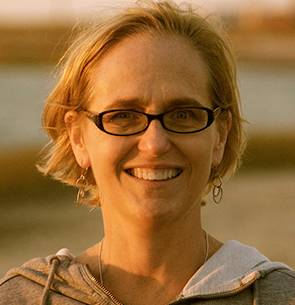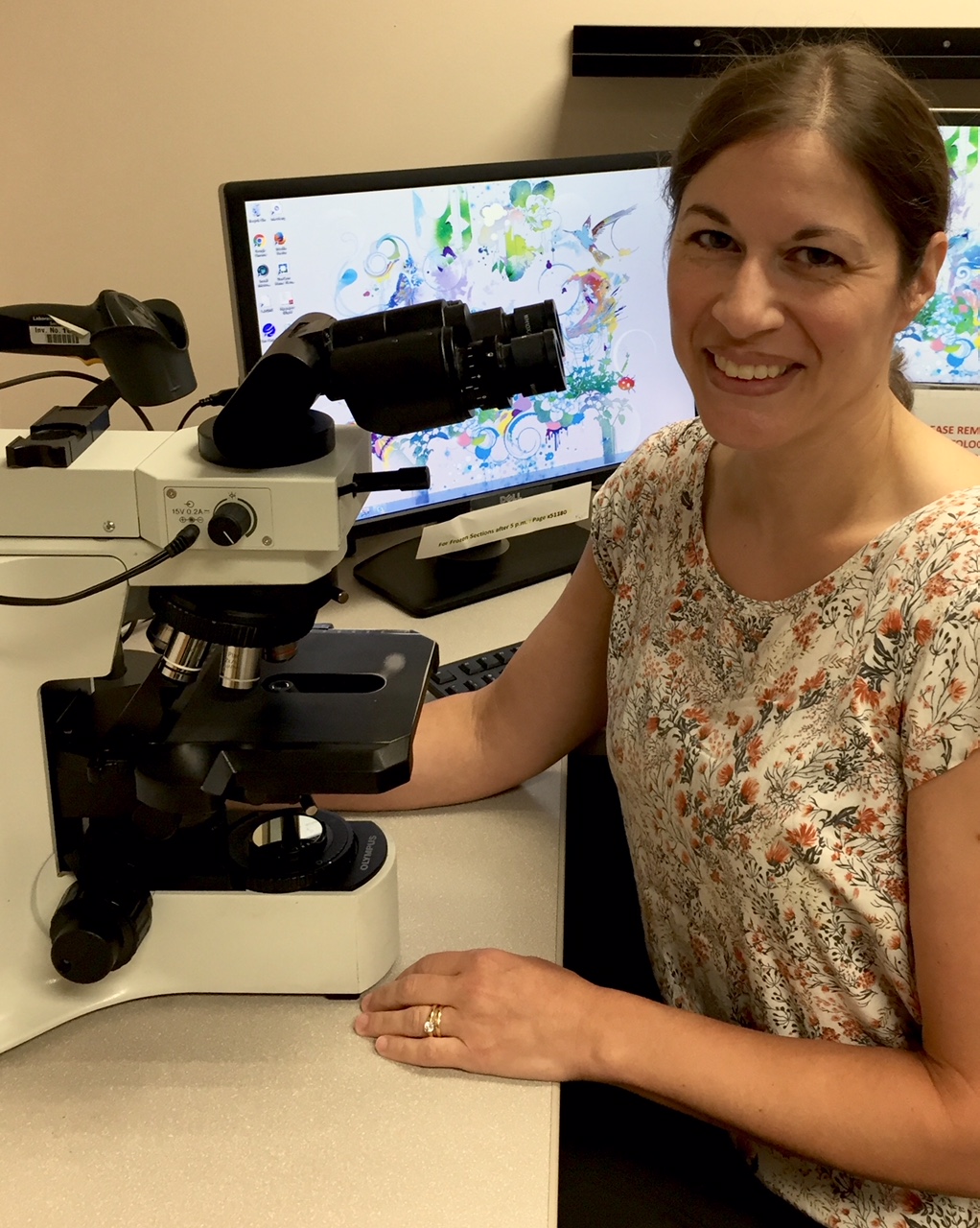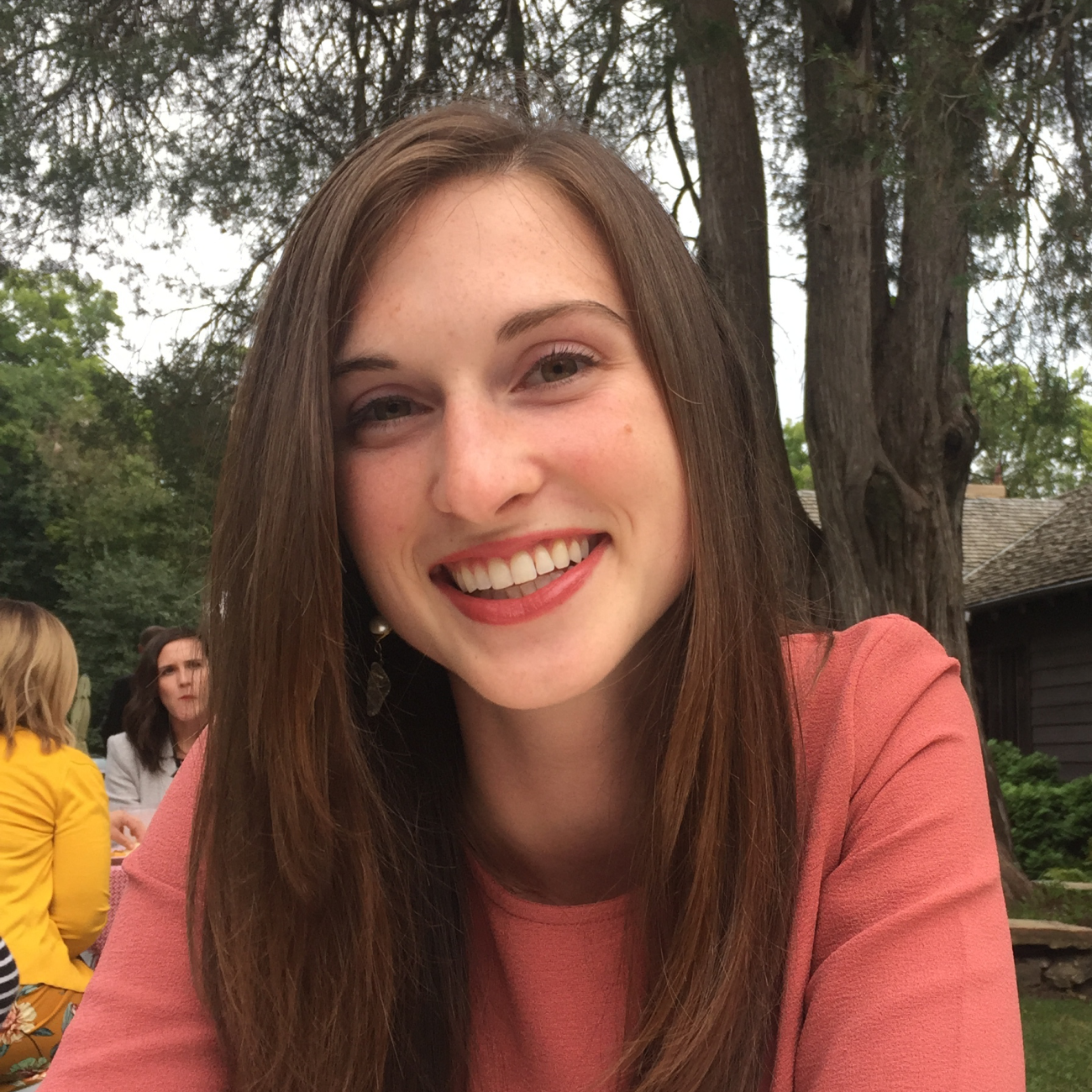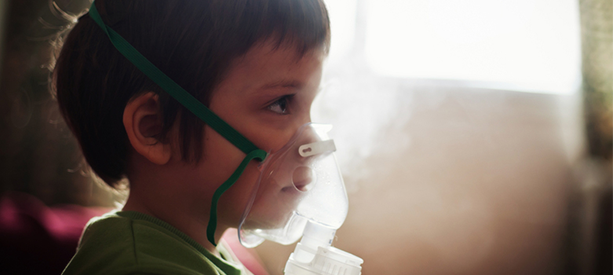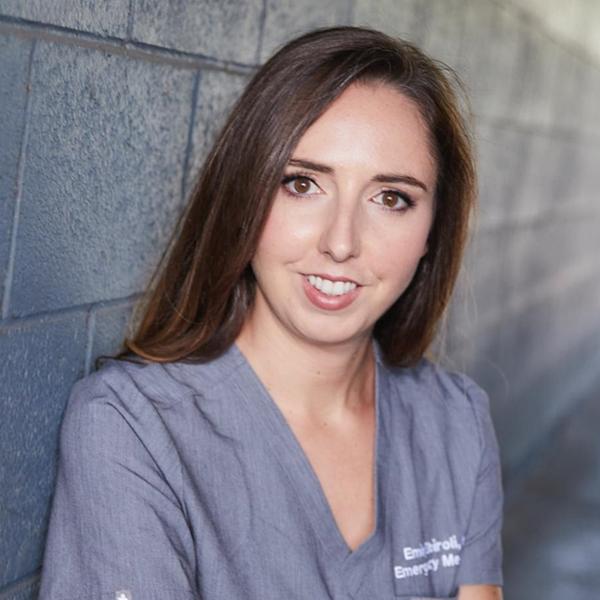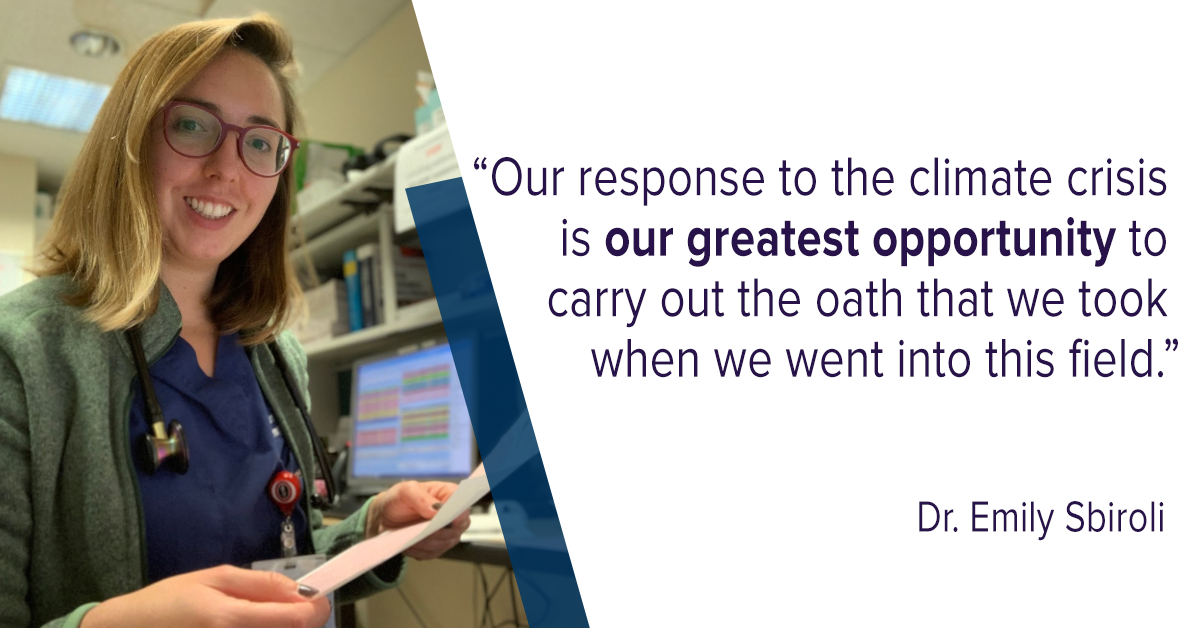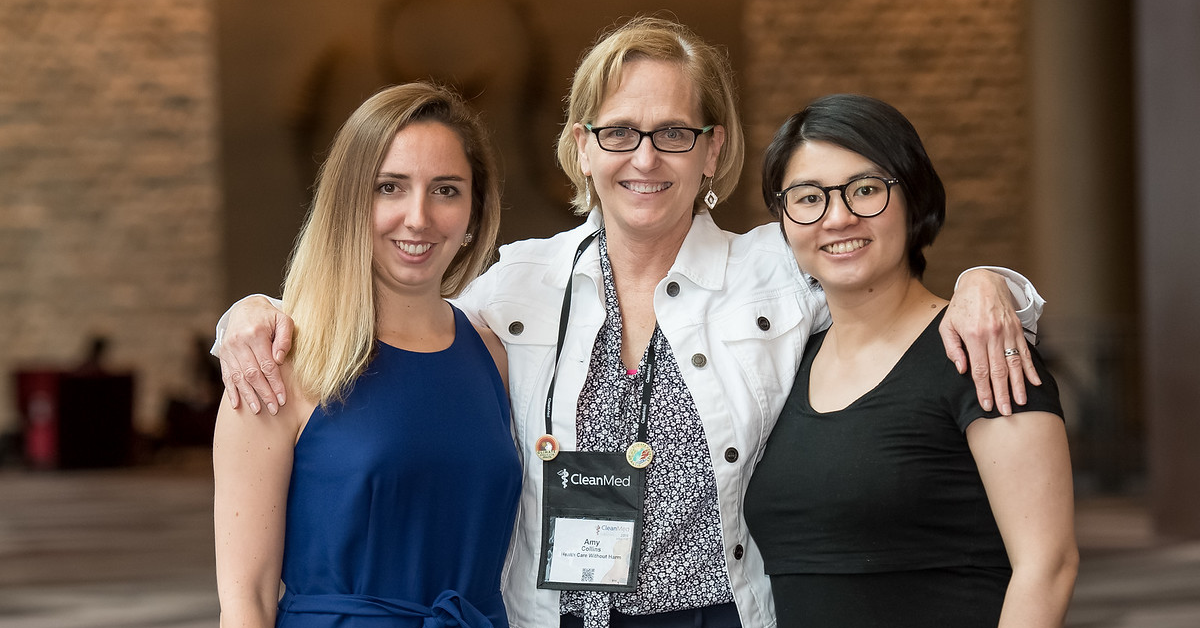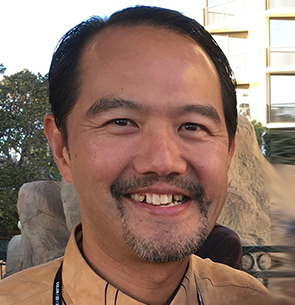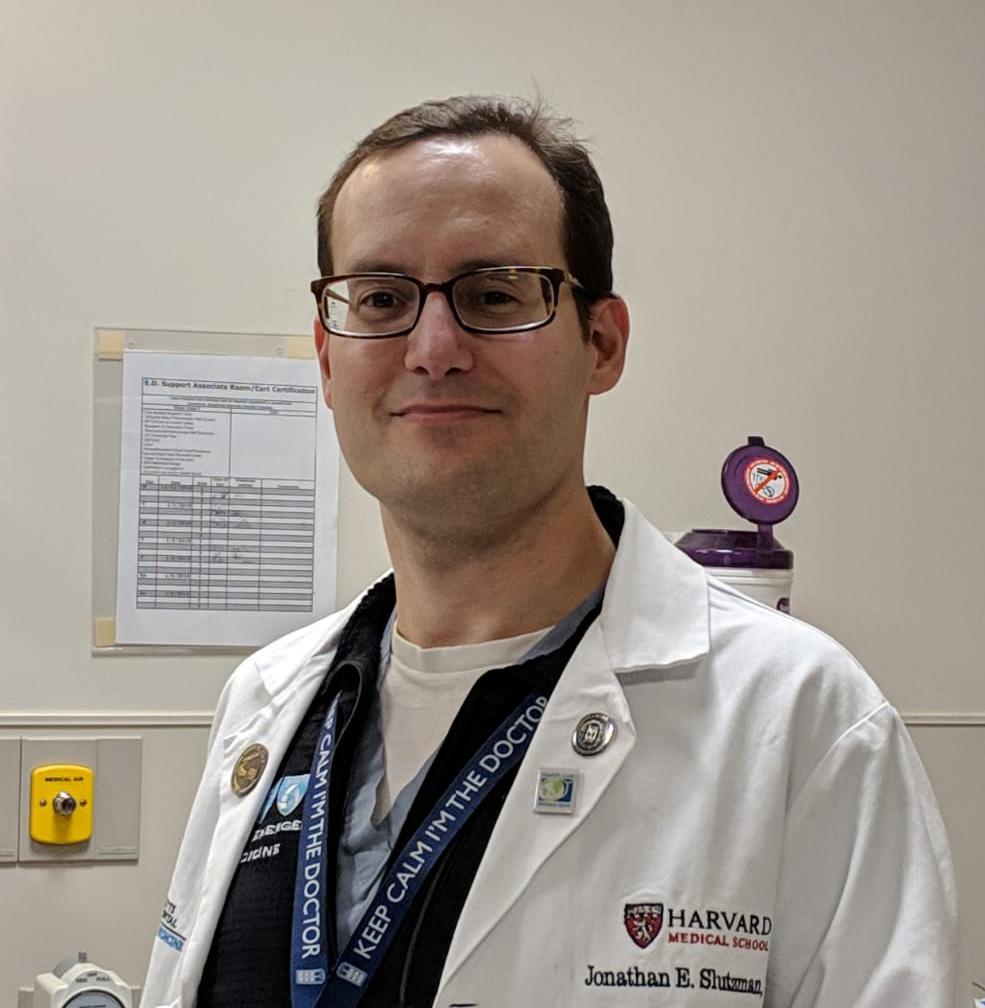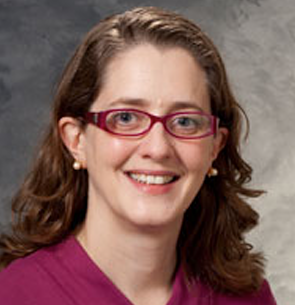
Read the profiles below and be inspired by the ways members of Health Care Without Harm’s Physician Network are taking action to promote climate-smart health care, protecting their patients from climate change and environmental threats, and advocating for a sustainable future.
Dr. Amy Collins
After an “aha moment” sparked by her son, Dr. Collins became increasingly aware of the environmental impacts of her workplace. In addition to working as an emergency physician, she leads Health Care Without Harm’s Physician Network, mentoring and supporting medical students and physicians interested in promoting climate-smart health care and other climate solutions.
Son inspires doctor’s second career
Dr. Amy Collins first became inspired to act on climate change more than a decade ago when her fourth-grade son reprimanded her for idling their car in the pick-up line at his school. He had learned about climate change from his teacher and wanted the family to work together to reduce their carbon footprint. Later that day, the family watched “An Inconvenient Truth” and decided right away to implement changes at home.
After this “aha moment” sparked by her son, Collins became increasingly aware of the environmental impacts in her workplace.
“I started noticing things, such as all the recyclables that were being thrown in the trash in my emergency department, and began bringing recyclables home to put in our recycling bin,” she says. “I inquired about starting a recycling program in my emergency department and was told that it was illegal to recycle in a hospital!”
Collins did some research, discovered Health Care Without Harm, and quickly learned not only that it wasn't illegal, but that there were many other opportunities for hospitals to reduce their environmental impact. After writing a letter to her administrators, Collins was granted permission to start a recycling program and a sustainability team, and so began her second career path.
While attending her first CleanMed conference, Collins also discovered the strong connection between environmental factors and human health.
“I recall feeling ill that I had not done enough to protect my asthmatic son from environmental threats and vowed to do more in the future to protect him and my patients,” Collins says.
Her newfound knowledge and passion drove her sustainability work at MetroWest where the “Go Green Team” educated, empowered, and inspired employees to implement sustainability programming. Between 2007 and 2013, under the leadership of Collins, MetroWest won many Environmental Excellence Awards from Practice Greenhealth, including the Environmental Leadership Circle Award for two years.
Using the knowledge and experience she acquired at MetroWest, Collins has worked to inspire and equip other health professionals and hospitals to adopt new programs and practices that are in line with the oath to “first, do no harm.” For three years, she worked with Vanguard Health System as a consultant, leading the implementation of sustainability programs in Vanguard's hospitals nationwide.
Today, in addition to working as an emergency physician, Collins leads Health Care Without Harm’s Physician Network, where she has the opportunity to mentor and support both new and experienced sustainability leaders committed to climate-smart health care.
“Many medical associations recognize the effect of climate change on public health along with the environmental footprint of the health care sector and are calling on physicians to take climate action in their personal and professional lives,” Collins says. “Given the knowledge I have gained over the years, I feel deeply obligated to continue this satisfying work and am excited to inspire other physicians to do the same.”
Amy Collins, M.D., is a practicing emergency medicine physician, health care sustainability professional, and senior clinical advisor for Health Care Without Harm.
Dr. Ilyssa Gordon
When her pathology residency illustrated the need for waste reduction and recycling in the lab, Dr. Gordon knew there was more work to be done. Now she is the founder and co-chair of the Greening the Labs Committee at Cleveland Clinic, known as a leader of the “Greening the Labs” movement.
Gordon launches ‘Greening the Labs’ initiative
Dr. Ilyssa Gordon has always been passionate about the environment with a particular interest in recycling and waste reduction. She brought this passion with her to medical school, where she founded a student group, EarthCare, to explore the intersection of health care and healthy environments.
She hadn’t thought about the environmental impact of the health care sector, however, until her pathology residency when she started noticing how many recycling opportunities there were in the lab.
“Hospitals and research labs use a lot of single-use individually wrapped supplies, as well as plastic bottles,” Gordon explains.
This motivated her to join the hospital sustainability committee and attend her first CleanMed in 2009, which she says “was eye-opening for me.”
“I knew then that reducing the environmental impact of the health care sector was my passion and was going to be a focus of my career,” Gordon recalls.
She was excited to bring this newfound knowledge and awareness with her to her role as a pathologist at the Cleveland Clinic, where she discovered many opportunities for waste and energy reduction in the laboratory. This inspired her to start a recycling program in the lab and found the Greening the Labs Committee, which she continues to co-chair.
Gordon understands physicians can have a tremendous impact by educating their colleagues and medical students, and she enjoys talking about the importance of sustainability with her peers and mentoring the next generation of physician sustainability leaders. She developed an online course to educate pathology and laboratory staff about the laboratory recycling program. She has also found ways to integrate sustainability education into the pathology residency program.
“There was a call for ideas for quality improvement projects, which are a resident requirement, and we had two Greening the Labs projects chosen and completed by pathology residents, which they also presented as an abstract at a national pathology meeting,” Gordon says.
Now, Gordon is known as a pioneer of the Greening the Labs movement and has spoken at CleanMed and the International Institute for Sustainable Laboratories Conference. As co-chair of the institute’s Landfill Diversion Working Group, she collaborates with colleagues in hospital, academic, government, and industry labs with the goal of reducing waste.
U.S. health care facilities generate 14,000 tons of waste per day, which is often sent to the landfill or incinerated. Around 20 to 25 percent of this is plastic packaging or products. Gordon works with the Health Care Plastics Recycling Council, a consortium of industry and health care facilities working to reduce plastic waste and increase plastic recycling in clinical settings.
Because of the expertise she has developed around waste reduction, Gordon was named the medical director for sustainability in the Robert J. Tomsich Pathology & Laboratory Medicine Institute at Cleveland Clinic. She works closely with Cleveland Clinic’s Office for a Sustainability to identify additional opportunities, not only in the laboratory but across the health system to reduce the environmental impact of their operations.
“Each department needs to do their part to support the overall goals and commitments to sustainable operations, set forth by the Cleveland Clinic leadership,” she says.
Gordon sees strong connections between her work as a physician, her concern for the environment, and building a positive workplace.
“Being a physician is more than just taking care of my patients, it’s taking care of my workplace, my co-workers, and my community,” Gordon says. “I’ve applied my deep-seated interest in recycling to my workplace in a variety of different ways, which not only enrich my own daily experience, but also contribute to an engaging atmosphere at work and in the community.”
Ilyssa Gordon, M.D., Ph.D., is a practicing gastrointestinal pathologist and founder and co-chair of the Greening the Labs Committee at the Cleveland Clinic, where she serves as the Medical Director for Sustainability in the Robert J. Tomsich Pathology & Laboratory Medicine Institute. Gordon serves as an adviser to the Health Care Without Harm Physician Network.
Dr. Melissa Pavelack
After learning about the impact of the health care sector on climate, Dr. Pavelack decided to become a pediatrician with a focus on pediatric environmental health. Her clinical work, research, and passion for environmental health drive Pavelack’s mission to educate and empower her health care colleagues, patients, and families.
Pediatrician’s biocentric mindset shapes career path
Whether strolling by the riverside or wandering in the woods, Dr. Melissa Pavelack has always sought solace in nature. “Like many, my interest in the environment was probably sparked in my childhood,” she said. “Not thinking anything of my creek walks, shoreline treasure hunts, or frequent woodland adventures, I developed a keen liking for the outdoors.”
She enhanced her connection to the natural world as an Physicians Networkosteopathic medical student at Midwestern University near Chicago, where spending time outdoors helped her unwind and stay grounded. “Upon entering college in a big city, I noticed myself seeking solace in any riverside or outdoors oasis in my free time to fulfill a need that I did not yet understand,” she said.
Determined to further her understanding, Pavelack sought to learn about climate change and its relevance to her future medical career. She was surprised to discover that human activities, such as dependence on fossil fuels, motorized transportation, and animal agriculture, are primary causes of climate change that negatively impact human health and quality of life.
“At first glance, the immediate effects of climate change might seem minimal or rare, hence why a significant portion of the population does not consider them an important factor in their quality of life,” she said. “Despite this belief, almost every aspect of our lives is affected by the environment. I am just starting out in my career, but I have already seen children impacted by environmental exposures.”
As her environmental knowledge grew, Pavelack realized many of her own lifestyle choices were not adequately informed by biocentric principles. She shifted her approach to daily life and began taking small steps to improve her own mental and physical health and mitigate the consequences of climate change. “I took actions such as limiting meat in my diet and walking if the destination was less than a mile away, and as I made changes I found myself happier,” she explained.
As a medical student, Pavelack realized many common health conditions are preventable and often related to environmental choices and exposures.
During a fourth-year rotation in occupational and environmental medicine, she learned about the impact of the health care sector and the work of Health Care Without Harm. This caused her to notice the myriad ways she and her colleagues could be better stewards of the environment.
“How ironic that the thermometers we used contained mercury, a potent neurotoxin, and that the disposal of mercury-containing medical devices contributes to mercury pollution and harms the patients we are trying to help,” she said. “The irony only continued when I found that phthalates and other harmful chemicals that harm children are in our medical products.”
Determined to be part of the solution, Pavelack decided to become a pediatrician with a focus on pediatric environmental health. Talking about climate change with patients can be complicated, she said, but the benefits outweigh the risks, especially when the conversation opens the door to helping patients acquire healthy food, carbon monoxide detectors, or opportunities to volunteer and meet their neighbors.
“Unfortunately, the solution to many of the health effects of the environment and climate change is not straightforward,” she said. “There is no single action that all humans could take that would address the damages to our environment. Once I realized this complex issue was going to require work from all aspects, I knew that even just one short conversation to spark the idea in my patients was probably worth more than any negative effect of that conversation.”
Currently a pediatric resident at Advocate Children’s Hospital in Chicago, Pavelack has found ways to incorporate environmental health into her training by selecting relevant electives, taking detailed environmental histories, teaching principles of environmental health at Midwestern University, and working on her residency research project.
“My current research project involves identifying environmental factors that influence high-utilizing pediatric patients with asthma in order to better understand opportunities to reduce exposures and asthma exacerbations,” she explained. “I’ve chosen to focus on the impact of heat on pediatric asthma exacerbations, considering the increasing high-index heat days in the Chicago area.”
Pavelack feels obligated to educate health professionals about environmental health and has organized a variety of educational programs, including grand rounds. In addition to her clinical work and research, she is also involved with the sustainability team at Advocate Health. She knows the health of her patients is inextricably linked with the health of the planet, a truth that will inform her life and her practice going forward.
“I’m most proud of my education initiatives,” she said. “From lectures about preventable exposures in the home to arranging webinars about the health effects of climate change and informal conversations about environmental exposures, I am committed to educating my patients and health care colleagues about environmental exposures.”
Melissa Pavelack D.O. is a pediatric resident at Advocate Children’s Hospital in Chicago. Pavelack serves as an advisor to the Health Care Without Harm Physician Network and is a board member of Physicians for Social Responsibility, Chicago Chapter.
Dr. Emily Sbiroli
- Dr. Sbiroli is an emergency physician and completed the University of Colorado Climate and Health Science Policy Fellowship 🡥. During her fellowship she was the inaugural climate and health fellow at Health Care Without Harm and worked with the US EPA.
- She is a faculty member of the University of Colorado Climate and Health program and leads the development of the Diploma in Climate Medicine 🡥 certificate in sustainable health care curriculum. She provides support to the Health Care Without Harm Emerging Physician Leader Award program and the Blair and Georgia Sadler Fellowship.
- She is grateful for the mentorship she has received over the years and is inspired to continuously explore innovative ways to apply climate-smart principles to health care delivery, while educating and empowering the next generation of clinicians to do the same.
Devastated by Sandy, resident called to act
November 15, 2019
Dr. Emily Sbiroli says her spark for environmental activism happened the day she was born, Earth Day, April 22.
As early as kindergarten, she recalls being determined to protect the environment. During a class assignment, she wrote that as the president’s wife, she would tell the commander-in-chief “not to cut down any more trees.”
When Hurricane Sandy hit the East Coast, Sbiroli was a college student in New York City. The deadly superstorm devastated thousands of homes when it touched down in 2012, including her family’s home in Long Island which took on over three feet of water. Sbiroli offered her family shelter in her apartment in Queens, N.Y., but the move meant eight people would share the 400-square-foot living quarters.
As she cared for her relatives, Sbiroli first realized the importance of emergency doctors providing medical care during an extreme weather event.
She attended New York University, where she self-designed an undergraduate environmental sustainability major after the traditional majors didn’t meet her academic needs or environmental interests. Sbiroli planned to go to engineering school, but she missed interacting with people and began to consider a career in medicine as an opportunity to have contact with patients.
As she contemplated a change in career plans, she didn’t forget her passion for the environment. She knew a career in medicine would be the ideal way to combine her interests in sustainability, improving health, and helping people.
Sbiroli attended SUNY Downstate College of Medicine, where she first became aware of hospital waste.
"During my clinical years in medical school I was so struck by the volume of waste we created in the name of patient care first,” she recalls. “Don’t get me wrong, patient care comes first, but I knew there had to be a better way."
While doing medical school clinical rotations, Sbiroli became interested in emergency medicine after realizing emergency physicians were on the frontlines of health care, interfacing between the community and the entire hospital.
"This is what attracted me most to emergency medicine, and in the back of my mind I always knew that emergency doctors will be the first ones seeing the impacts of climate change on human health," she says.
Sbiroli is now a third-year resident at UC San Diego Health.
"As a resident, I realized I had a significant role in contributing to the waste problem on a daily basis,” she says. “It bothered every single day, and I felt like I just had to educate myself and become part of a larger movement."
During her internship year, she decided to submit a poster presentation, “Tips for Greening Your Practice,” for the California American College of Emergency Physicians annual conference. While doing research for the project, she happened upon an advertisement for CleanMed and was thrilled to learn it would be taking place in San Diego in 2018. “I checked my schedule and by pure luck I happened to have those days off, and I immediately registered."
Sbiroli says her professional life changed when she attended CleanMed, especially when she learned about Health Care Without Harm’s Physician Network during a session about climate change and emergency medicine.
"I couldn’t believe my fortune that an event and network like this even existed," she says.
"My breadth of knowledge on the subject expanded tenfold after my attendance to the point where I am now known as the ‘it girl’ in my department when it comes to sustainability in health care."
After CleanMed, Sbiroli learned her poster submission to California ACEP was accepted. She felt empowered by her new found knowledge, “since I was about a hundred times more knowledgeable about climate-smart health care, I joined my hospital’s sustainability committee as the sole physician member."
She was also inspired to apply for the Health Care Without Harm Emerging Physician Leader award. Sbiroli was one of two inaugural recipients of the award, chosen for her enthusiasm for climate-smart health care and inspirational vision for a sustainable future.
From left to right: Dr. Emily Sbiroli, Dr. Amy Collins, Dr. Hilary Ong
"I am so incredibly honored and grateful to have finally found a community of leaders and innovators who share the same goal of making sustainable health care a reality,” she said. “This award is a humbling reminder of the inspiring people I have met at CleanMed and the journey we have in front of us."
Sbiroli is an active member of the Physician Network.
“I am constantly using the network’s resources for references for talking points in my presentations. I am also so incredibly grateful for the individualized mentorship I get from Dr. Collins.”
Now, Sbiroli is focused on disaster preparedness and advancing climate-smart health care. Even with the demands of residency, she says she will continue to raise awareness about the link between climate change, health, and health care in the emergency medicine community.
In a recent presentation at FIX 2019, Sbiroli asked, “who better to lead the health care sector in this public health crisis than the people who were trained in emergencies and wrote the book on disasters?”
“Climate change is here – it is at our doorstep,” she said.
“We are on the frontlines of it as emergency doctors, and we need to be as prepared for it as we are for the next stroke patient or struggling asthmatic that comes into our waiting room.
“Our response to the climate crisis is our greatest opportunity to carry out the oath that we took when we went into this field.”
Emily Sbiroli is an emergency medicine resident at UC San Diego Health. She was an inaugural recipient of the Emerging Physician Leader award. She serves as an adviser to the Health Care Without Harm Physician Network. When she’s not practicing medicine, Sbiroli enjoys swimming, paddle boarding, and picking fruit around southern California.
Dr. Ted Shieh
After childhood events sparked an interest in protecting marine ecosystems, Dr. Shieh devoted his free time to educating the public on the human impact of marine ecology. Then, a chance meeting with a health care sustainability consultant and fellow emergency medicine physician sprung Sheih to focus on a new passion: creating sustainable immediate care centers.
Emergency physician creates sustainable immediate care centers in Chicago
Dr. Ted Shieh’s environmental awareness began during his childhood.
“My environmentalism started when an oil tanker crashed off the northern shore of Taiwan, spilling crude oil onto the beaches where I spent weekends in my childhood,” he recalls. His family then moved to Southern California, where he further “witnessed the devastating effect of untreated sewage runoff on the coastal marine ecosystem.”
These childhood events sparked a lifelong passion for protecting marine ecosystems and environmental advocacy. “In my adult life, I devote my free time to educating the public on the human impact on marine ecology at Chicago’s Shedd Aquarium as a coral reef diver,” he says.
Shieh first connected his commitment to environmental protection to health care when Dr. Amy Collins visited his emergency department at Westlake Hospital in her role as a health care sustainability consultant.
“While working a shift, I noticed Dr. Collins, a fellow emergency medicine physician, walking around my department looking into our waste containers and red bag bins,” he remembers. “This made quite the impression on me! I then learned that there was tremendous work to be done to make health care more sustainable.”
Inspired by this encounter, Shieh joined his hospital green team and attended his first CleanMed. With the knowledge he obtained, he went on to lead their green team. Under his leadership, his hospital received two Practice Greenhealth Environmental Excellence Awards. Since then, Shieh has spoken annually at CleanMed and is known for his creative sessions, most memorably an interactive, green pharmacy game during CleanMed 2017.
Shieh brought his knowledge about sustainable health care to the DuPage Medical Group where he now works.
“I started an innovative, value-based, clinically efficient, sustainable clinical service line which has expanded rapidly, in part due to our ability to reduce resource utilization and costs by integrating sustainability into our purchasing decisions and practice management,” he says.
His achievements include saving $40,000 a year by converting to safer, non-toxic DEHP-free IV bags and tubing, and an additional $35,000 a year by switching from disposable to reusable cubicle curtains. The immediate care centers also use paper products with 100 percent recyclable fibers, biodegradable waste bags, as well as a a drug formulary reassessment process that reduces medication waste.
When asked how he did it, Shieh explains, “I advocated for our physician-led organization to adopt a set of environmental stewardship principles and created a green team which continues to drive environmental stewardship across our organization.”
Shieh finds that his understanding about the environmental determinants of health enriches his interactions with patients.
“I am always looking for opportunities to educate my patients about the links between the environment and health and believe in an upstream approach to solving health challenges,” he says. “In my daily practice I educate patients about climate change and health, avoiding environmental triggers, green pharmacy, the health benefits of sustainable diets, and the current antibiotic resistance crisis.”
Shieh is also always on the lookout for ways to reduce his environmental footprint in his personal life. He and his wife, also a sustainability professional, recently retrofitted their home, achieving Greenstar Gold Certification. They open it to the public to showcase the benefits of renewable energy.
“The work to affect change for good starts within ourselves and expands outward,” Shieh says. “Clinicians can affect the sphere of health care to be more sustainable environmentally, socially, and financially.”
Ted Shieh, M.D., is the chairman of emergency medicine/immediate care at DuPage Medical Group, founder of their green team and sustainable immediate care centers, and serves as an adviser to the Health Care Without Harm Physician Network. His interests include green pharmacy and building design, sustainable food systems, and the integration of sustainability into clinical practice.
Dr. Jonathan Slutzman
From environmental engineer to instructor in emergency medicine, Dr. Slutzman has kept climate at the center of his career. Despite a demanding clinical schedule, he also works to educate health professionals about the environmental impact of health care while researching and advocating for opportunities to advance climate-smart health care as a critical public health imperative.
The physician who engineers climate solutions
Like many physicians in the sustainable health care movement, Dr. Jonathan Slutzman’s interest in the environment began in his youth. “I was an avid outdoors person, spending weekends camping with the scouts and summers at my grandparents’ 120 acres of woods and farmland,” he recalled.
His connection to the outdoors motivated him to design solutions to environmental problems, and he went on to major in civil and environmental engineering at Princeton University, where he also worked as an EMT. “I saw emergency medical care as my hobby and environmental engineering as my career,” he said.
After graduation he worked as an environmental engineer for five years, successfully completing a number of projects and utilizing the life cycle assessment tool to determine the cradle-to-grave environmental impacts of products and processes. But he felt frustrated with his limited ability to affect change.
“My projects just didn’t seem to have the impact I wanted,” he said. Then he realized the solution:
“I knew that I needed to try things the other way around and make emergency medicine my career and environmental matters my hobby.”
So began Slutzman's second career path. He left his engineering position, graduated from Albert Einstein School of Medicine with distinction in disaster medicine, and completed the Harvard Affiliated Emergency Medicine Residency at Brigham and Women’s and Massachusetts General hospitals.
As a fourth-year resident, while working on a project about the economic costs of emergency medicine with his adviser, they both wondered out loud why one of their emergency departments used reusable suture kits while the other used disposable ones. In that moment, Slutzman recalled his knowledge of life cycle assessments, and realized he had the tools to answer their question.
He began comparing simple health care products and processes from an environmental impact perspective, and he attended his first CleanMed in Boston in 2013.
“I really found my people,” he said of the event.
“I found a community within health care that cared about these things and could be an outlet and support group for bridging my two interests in medicine and environmental engineering.”
Inspired by CleanMed, Slutzman went on to develop a research project comparing reusable and disposable suture kits using a life cycle approach to assess environmental impact. “Not all environmental assessments of health care products can be simply answered by saying that disposables are bad and reusables are good,” he concluded. His research made him aware of the tool’s potential to evaluate and reduce environmental impacts in the emergency department and hospital.
At CleanMed 2018 in San Diego, Slutzman spoke about his research project during a lively session on how suture kits offer a complex example of cradle-to-grave environmental assessment. He is currently an instructor in emergency medicine at Massachusetts General Hospital and Harvard Medical School with an academic focus on the environmental and financial costs of health care. In addition, as a disaster relief professional, he is a volunteer member of the MGH Global Disaster Response Team.
“No single individual physician -- or even a group of physicians -- can change institutional practices,” he said. “Physicians need to educate our leaders to show them why environmental factors should be considered in strategic and tactical decisions."
"I think the key is finding the language that works for each audience. I speak both ‘engineer’ and ‘physician,’ which can help in different encounters.”
As a physician educator, he feels an obligation to share his knowledge about the environmental impact of health care, along with opportunities to reduce the impact. In his recent article on the hidden harm of pollution, he concludes, “As a major contributor to air, water, and other kinds of pollution, health care can damage health even as it heals. By working together to reduce the environmental impact of health care, doctors and patients can keep themselves, their communities, and the planet healthier for generations.”
Slutzman and a small group of emergency medicine physician climate leaders have issued a call to action for the specialty to lead climate and health advocacy, research, and education. Slutzman’s message to his colleagues is straightforward: “Emergency medicine is one of the last few holistic specialties touching on everything in medicine,” he said. “Environmental and climate change impacts cross boundaries and need emergency physicians, the specialists in vulnerable populations and disaster response, to lead solutions.”
His advocacy has even gained an international audience, as he spoke at CleanMed Europe about the role of emergency medicine in promoting climate-smart health care through leadership, mitigation, and resilience.
Despite his demanding clinical schedule, Slutzman is motivated to continue his environmental work. “I am a physician and advocate for all patients,” he explained. “The environment too needs an advocate. The task is daunting but still needs to be done.” He cited a Jewish proverb: “It is not your responsibility to finish the work, but neither are your free to desist from it.”
His vision is for every hospital and health care professional to consider sustainability in all building, purchasing, operational, and clinical decisions and to prioritize climate-smart health care as a critical public health imperative. Environmental sustainability should be just as important as financial sustainability, patient safety, and care quality.
“I want to see a sustainability leader in every hospital, with the same attention as is given to quality and safety,” he said. “I want to see hospitals and health centers that generate less waste, emit less pollution, and use less energy. We should be healing our patients and our communities, not harming them.”
Jonathan Slutzman, M.D., is an instructor in emergency medicine at Massachusetts General Hospital and Harvard Medical School with an academic and research focus on the environmental and financial costs of health care. He is the founder and leader of the Partners Healthcare Physician Sustainability Steering Committee and the chair of the Society for Academic Emergency Medicine Climate and Health interest group. He also serves as an advisor to the Health Care Without Harm Physician Network.
Dr. Karin Zuegge
From composting and recycling with her family as a child to her role as an anesthesiologist, Dr. Zuegge believes every action taken to reduce the impact of health care, no matter how small, is valuable.
Lifetime awareness of waste guides anesthesiologist’s career path
Dr. Karin Zuegge’s awareness of waste began as a child. The University of Wisconsin Health anesthesiologist recalls her mother saying “there is a huge future in trash – it is always being produced.”
As a family they composted and recycled but didn’t have trash pick up so they drove their waste to the landfill themselves. This early concern about waste generation and disposal sparked a lifelong penchant for always being on the lookout for opportunities to reduce waste.
During her anesthesiology residency, she became increasingly concerned about the waste generated in hospitals, especially in the operating room.
“Working in the OR, you see an enormous amount of sterile packaging get discarded every day,” she says. “I couldn’t stop looking at it and thinking about how this waste accumulates and all just goes to the landfill.”
Zuegge soon discovered the OR is one of the largest users of supplies in hospitals. (Studies have estimated 20 to 30 percent of a hospital’s total waste comes from the OR.) Early in her career, she also learned about another type of waste generated from the OR: waste anesthetic gases.
“I was talking about low-flow anesthesia with one of my residents and he referenced a research paper about the greenhouse gas potential of anesthetic gases,” Zuegge recalls. “I then did my own research about the environmental impact of inhaled anesthetic gases and became committed to reducing their use in my practice and educating my anesthesia colleagues about alternative agents.”
Recognizing that physicians can be powerful advocates for sustainable health care, Zuegge decided to write a proposal to her hospital CEO, articulating the business case for creating a medical director of sustainability position.
In her proposal she wrote, “Physicians are the final arbiters of health care. It is in their professional nature to challenge the establishment to promote patient welfare. Medical decision making is driven by data and clinical reasoning based on physician expertise. The endorsement of a physician for sustainability will lend immense credibility to this program for frontline clinicians within the organization and beyond. An official title and position also lends authority and influence to the person in this role. Having a physician leader will make it clear that the direction of the program is in the best interests of patient care and health care overall.”
She closed the letter by saying, “Physician representation in leadership can improve the sustainability program impact on the whole organization. Executive leaders have many responsibilities and can have a larger influence on the organization with dedicated, enthusiastic, frontline support. A great way to provide this would be to have an official medical director of sustainability.”
Hospital leadership agreed, and Zuegge became the health system’s first medical director of sustainability in January 2017. In that role, Zuegge partners with the sustainability program director and engages clinicians in the organization’s sustainability efforts. But she is most proud of her successes in the operating room.
“We initiated a recycling program in the OR and now divert 20 percent of our previous landfill tonnage to be recycled,” she says. “We educated providers about the environmental and cost impacts of anesthetic gases. Using fresh gas flow and agent choice initiatives, we have seen an over $30,000 per month reduction in purchasing and a more than 4 million kilogram annual reduction in CO2 emissions as a result of this.”
As the vice chair for education for the Department of Anesthesiology, Zuegge has the opportunity to educate her colleagues about sustainable health care. She has established an annual Grand Rounds lecture on a sustainability topic as well as an annual new employee and new resident orientation about their sustainability initiatives.
Zuegge engages and educates clinicians using creative methods, such as promoting sustainable practices through art. To raise awareness about waste, their green team launched a project to start collecting colorful, plastic, medication vial tops. Zuegge then collaborated with the art coordinator for UW Health and held employee events to create mosaic artwork from the vial caps. Zuegge wrote about the success of this project in the journal Anesthesiology.
In her role as a sustainability professional Zuegge believes every action taken to reduce the impact of health care, no matter how small, is valuable. She communicates this to her colleagues by reminding them, “every step we take is important and matters in the path towards a more sustainable future.”
Zuegge was an inaugural member of the Health Care Without Harm Physician Network, sits on the American Society of Anesthesiologists Environmental Task Force, and serves as the liaison between the task force and Practice Greenhealth’s Greening the OR initiative.
Health Care Without Harm’s Physician Network
Our Physician Network supports physicians and other health professionals in leveraging their influence and expertise to advance the growing health care sustainability movement and to create climate-smart health care. The Network brings health professionals together for networking and mentorship along with the opportunity to share best practices and inspire one another in advocating for a sustainable and healthy future.
